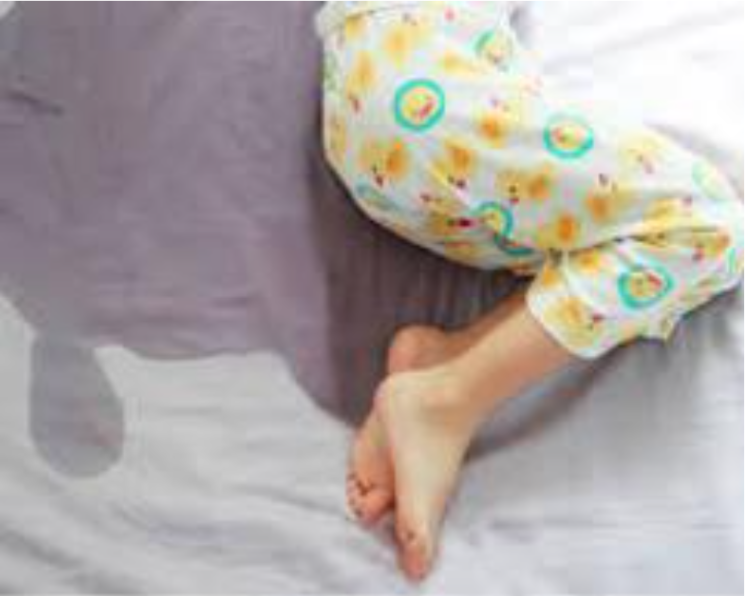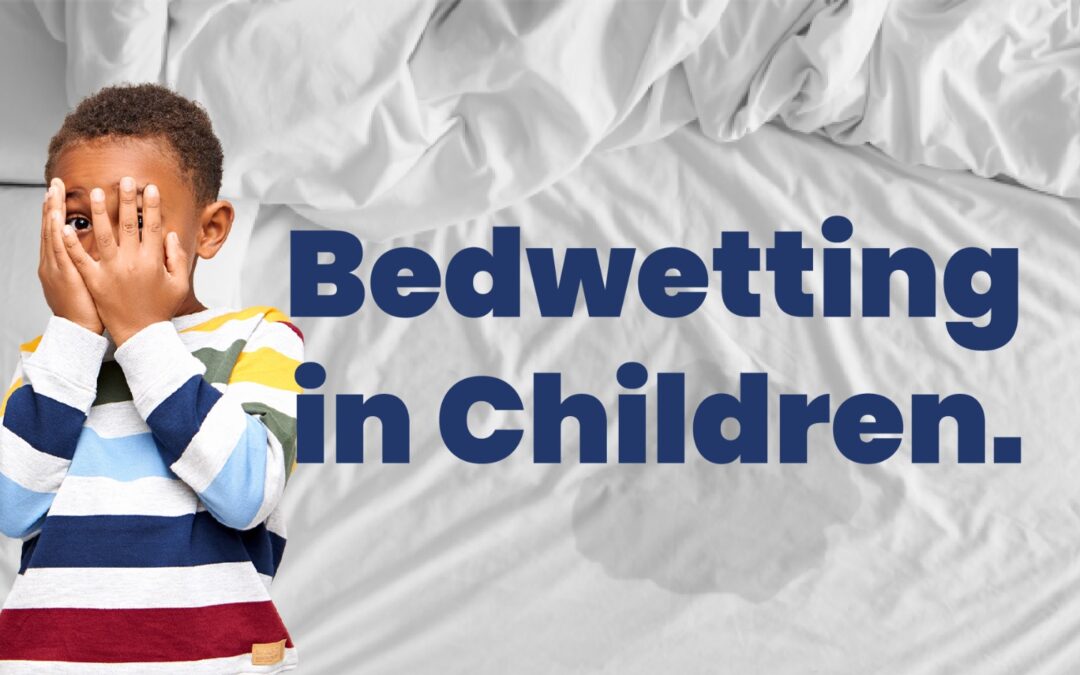What is Bedwetting?
Bedwetting is also known in the medical field as ENURESIS. This is the accidental or involuntary release of pee while sleeping. It is more common in children and may occur either in the day or even in the night. When it occurs in the day, it is known as diurnal enuresis, but when it occurs in the night it is known as nocturnal enuresis. Some children experience either of the two types of enuresis or both.
Estimates suggest that 7% of boys and 3% of girls at the age of 5years old experience bedwetting and this numbers drop to 3% of boys and 2% of girls at the age of 10years. Most children stop bedwetting gradually on their own as they grow older. This usually happens between 4 and 6 years of age in children. Bedwetting generally becomes an issue if your child is over 12 years old and continues to wet the bed two or more times a week for at least three months in a row.
Although bedwetting is not a serious condition, however, the experience can cause stress for both your child and the family. This may be due to the embarrassment that children may feel because of this and may in turn withdraw from participation in activities and even reluctance to join in transits that may require that they sleep over because of the fear of bedwetting.

Types of Bedwetting/Enuresis
There are two main types of bedwetting:
- Primary nocturnal enuresis occurs when a person has never remained dry throughout the night for six months in a row or longer.
- Secondary nocturnal enuresis occurs when a person wets the bed again after not wetting the bed for six months or more. Secondary enuresis is usually the result of a medical or psychological condition.
Causes of Bedwetting?
If bedwetting happens to you as an older child, teenager, or adult, it’s usually involuntary or a sign that your body isn’t working as you expect it to. A healthcare provider can help you navigate these changes to your body to help you feel better and wake up dry. Children with enuresis are often described as heavy sleepers who fail to awaken at the urinary urge to void or when their bladders are full. Many factors may be involved in the development of enuresis. When a child starts to experience bed-wetting, especially secondary bed-wetting, parents should pay attention and figure out why it is happening. There is a strong family connection with bed-wetting. About 40% to 50% of kids with nocturnal bed-wetting had a parent who struggled with bed-wetting as a child.
However, Involuntary or unintentional release of urine may result from:
- A small bladder.
- Persistent urinary tract infection.
- Severe stress.
- Developmental delays that interfere with toilet training.
- Obstructive sleep apnea
- Voluntary, or intentional, enuresis may be associated with other mental disorders, including behavior disorders or emotional disorders such as anxiety.
- Enuresis also appears to run in families, which suggests that a tendency for the disorder may be inherited (passed on from parent to child, particularly on the father’s side).
It’s common for children to wet the bed between the ages of 4 to 6 as they grow and adapt to their bodies at their own pace. The majority of children gain control of their bladders by age 7. After age 7 and throughout your child’s teenage years, accidents can happen.
How to Help a Child Deal with Enuresis
There are things that parents can do to help a child with secondary bed-wetting or who is older than 7, including:
- Restrict fluids in the evening.
Encourage the child to drink plenty of fluids during the day to remain hydrated and reduce thirst in the evening. Avoid high-sugar or caffeinated drinks during the evening. Restrict drinks within two hours of bedtime. - Build voiding into the bedtime routine.
Start the bedtime routine by urinating and then encourage the child to go again before falling asleep. - Set alarm for overnight voiding.
Some children can stay dry by voiding in the middle of the night. For example, a parent can set the alarm to wake the child at midnight, the child uses the bathroom, and then return to bed. - Use a moisture alarm.
These over-the-counter pads, also called bed-wetting alarms, are connected to a battery-operated alarm. This approach takes time, motivation, and patience. It can take one to three months to see results, but this option is low-risk and may be a better long-term solution than medications. - Try prescription medications.
Occasionally, a child could be prescribed desmopressin as a short-term solution for bed-wetting. This medication retains water in the body, so the child’s bladder does not get too full overnight. There are a few possible side effects with medication, which should be discussed with your child’s healthcare team. The medication is more effective in older children, and the overall success rate is about 30%. Usually, other strategies, including time, are tried before medications.
What Not to Do
Bed-wetting can be frustrating and embarrassing for children. It can cause anxiety, especially for children planning sleepovers with friends. Children look to their parents for their response to the situation and acceptance regardless of their struggles.
If your child is experiencing secondary bed-wetting, here are four things you should not do:
- Reprimand or scold.
Children don’t wet the bed because of laziness or spite. Yelling or expressing your disappointment does not help children’s bed-wetting and can hurt their confidence. - Withhold liquids all day.
Depending on age, children need between 4 and 8 cups of water each day to remain hydrated. This improves mood, memory, energy, and attention while decreasing the risk of constipation. Consider restricting liquids in the evenings, but encourage fluids during the day. - Purposely embarrass your child.
Discussing children’s bed-wetting with peers or family can increase anxiety and embarrassment. It doesn’t motivate and can create lasting emotional scars. - Compare children.
All children are different and develop at their own rates. They can’t control how quickly the nerves in their bladders mature or their bladder sizes. Don’t compare children to siblings or peers, as this will only increase stress and lower self-esteem. - Expect instant results.
Sometimes, all a child needs is time and a supportive parent. There are no quick fixes for solving bed-wetting. Be patient, kind and compassionate.
Remember, bed-wetting isn’t anyone’s fault. Your child isn’t lazy and isn’t doing it on purpose. Most likely, it’s a familial gift passed down by one of the parents.
Talk with your child’s healthcare team about weight loss, burning or cloudy urine, daytime incontinence, or increased thirst, as they could be a sign of a different, treatable condition.
How Long Does Bedwetting Last?
Bedwetting is common and doesn’t typically last forever. Children usually grow out of the condition when they learn to control their bladder. If an underlying condition causes bedwetting, treating that condition will stop or reduce bedwetting. It may take time to manage nocturnal enuresis, but it’s a treatable condition.
It can be a very stressful issue for anyone who has nocturnal enuresis, as well as for parents and caregivers. Some people find comfort in speaking to a mental health professional. It’s important to remember that your healthcare team is there to provide support and help you through this. Reach out to discuss any questions you might have.
REFERENCES

